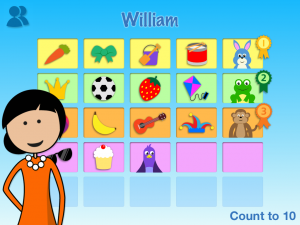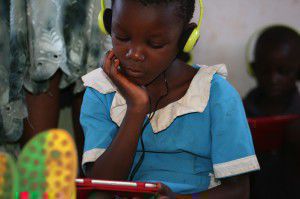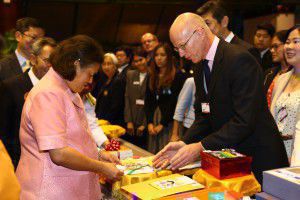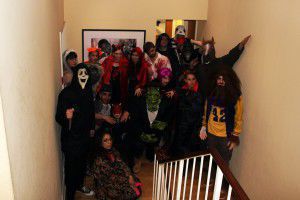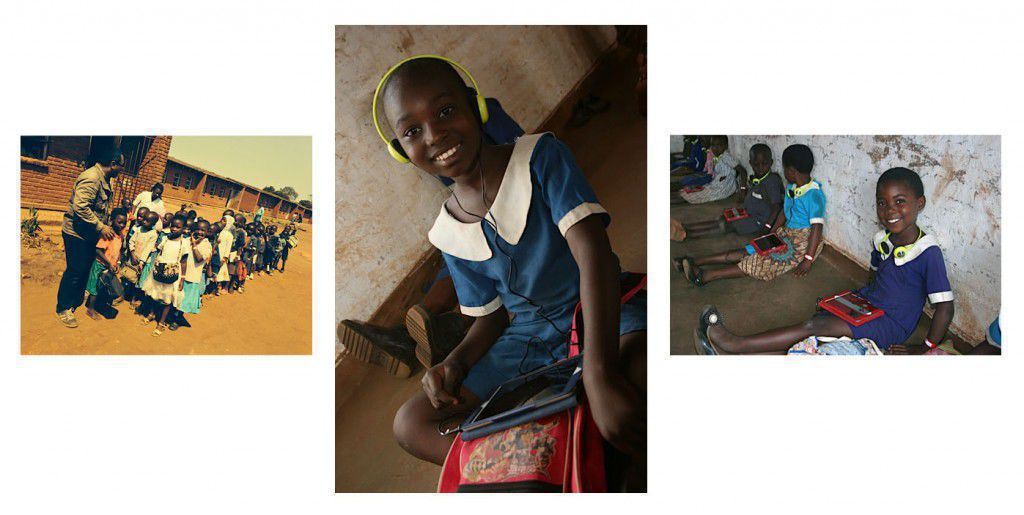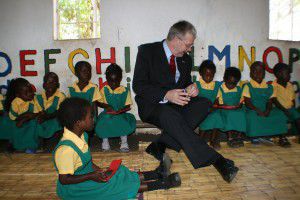15 cultural faux pas to avoid when travelling
Before you go on holiday, or on a business trip abroad, it’s a great idea to learn a little of the local language. But getting along with people is about much more than just the words you say. There are other rules too, so here are our top tips to avoid misunderstandings abroad.
1. Be very careful when exchanging business cards in Japan: they aren’t just cards, but representations of the giver and should be handled with some ceremony. NEVER write on a business card or put it in your back pocket, as this is considered disrespectful.
2. Don’t talk about work over dinner in New Zealand, even if you’re having a meal with your colleagues. It’s fine to talk business over lunch, though.
3. In Muslim countries it’s considered an insult if you show the soles of your feet, so watch how you sit.
4. If you’re in Hungary and you’ve been told your meeting is at ‘fél négy’ (‘half four’), don’t turn up at 4:30 – ‘fél négy’ actually means half an hour TO four, so you’ll need to be there at half past three.
5. On the other hand, if you’ve been invited to a gathering in France, always aim to arrive 15-30 minutes late, to allow the host time to get ready.
6. Making a circle with your forefinger and thumb as another way of saying ‘OK’ is seen as an extremely offensive gesture in Brazil. As is the ‘thumbs up’ gesture in Iran, and showing your palm in Greece. It might be better to just avoid hand gestures altogether…
7. In Germany, not making eye contact when you clink glasses is considered very rude. It also, apparently, means you’ll have seven years’ bad luck in the bedroom. So even if you’re not worried about being thought bad-mannered, it might be worth making the effort. Just in case.
8. In Bulgaria, nodding your head means no, and shaking your head means yes, which is the opposite of what most of us are used to. This is worth remembering or you could get yourself into all kinds of trouble.
9. It’s been illegal to bring chewing gum into Singapore since 2004, because of the damage being caused to public buildings and facilities by people leaving their gum behind. You can also be fined for not flushing a public toilet.
10. In Russia, if you’re giving someone flowers, make sure you give them an odd number. Even numbers are for funerals.
11. It’s important to show respect to your elders in Asia, so don’t call them by their name; instead use ‘Auntie’ or ‘Uncle’, even if you don’t know them.
12. When eating a meal in Spain, you’ll be expected to clear your plate, and leaving some food is seen as rude. In Russia, on the other hand, you’re expected to leave a little as a sign that your host has provided enough to fill you up. And in China, a polite belch when you finish eating is considered a compliment to the chef, although it’s frowned upon in many other countries.
13. Never say anything disrespectful about the king in Thailand, as this could land you in prison for several years.
14. Make sure you’re appropriately dressed before going to church in Italy. This means your shoulders, knees and midriff should all be covered, or you won’t be allowed in.
15. In Malawi, it’s common for people of the same sex to hold hands; this is a sign of close friendship, so don’t worry if someone tries to take your hand. It’s a compliment. Men and women holding hands is rare, though, and may be frowned upon.
As always, if anyone has any others, we’d love to hear from you!
EuroTalk: a look back at 2013
It’s been another busy year at EuroTalk, with new products, new languages… and a new puppy. Throw in a royal encounter and a cake that looks like a Dalek, and you’ve got the makings of an interesting twelve months.
Languages
In June, we launched our new app for iPhone and iPod touch, uTalk. This had been in development for a long time, and we were really proud and excited to be able to share it with the world. It’s got more content and more activities, and it’s free to download and start learning the essential words you need to get by in 60 languages. We’ve been adding more languages regularly since the app was launched, and will continue to do so over the coming months. So if we haven’t yet got the language you need, don’t worry – we soon will.
And that’s not all. Last month, we added Lao, the official language of Laos and also spoken in the north east of Thailand, to our range with the release of Talk Now, our beginner program for PC and Mac. Lao has about 15 million speakers worldwide, and is a language we’ve been wanting to offer for some time now. There are more new languages on the way in 2014, so watch this space…
Maths
This year also saw the launch of part 2 of our second maths app, Maths, age 4-6, and two new practice apps – Count to 10 and Count to 20. We also released a version of Maths age 3-5, for schools, so teachers can use the app in the classroom.
Malawi
We’ve been working in Malawi now for several years, as part of our mission to ensure one billion primary age children reach their full potential in numeracy, reading and English. This year, Dr Nicola Pitchford from the University of Nottingham conducted an evaluation at Biwi Primary School in Malawi, to measure how effective our maths apps are for the children’s learning, compared to other teaching methods, including other apps. The preliminary results show that not only did the group using our apps perform significantly better than the other groups, but in fact they tripled their maths knowledge in just eight weeks. This is really exciting and encouraging, and we hope now to scale up the project in Malawi to reach more children, in more schools.
Junior Language Challenge
2013 saw the return of the JLC, after a year off in 2012. Our annual language learning competition for primary age children across the UK is always very popular, and this year was no exception. We were joined at the final by Martha Payne of NeverSeconds, who at just 10 years old, has raised over £140,000 for Mary’s Meals, a charity providing school dinners to children in Malawi. Martha, with her dad and her sister, was our special guest and handed out the prizes to our finalists, including the JLC Champion for 2013, Ella Whittingham from West Bridgford, Nottingham.
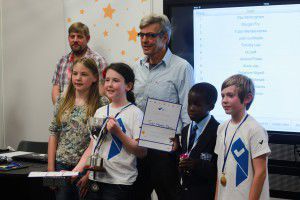
Martha Payne with JLC Champion Ella Whittingham, runners-up Morgan Fry and Tudor Mendel-Idowu, and EuroTalk Chairman Richard Howeson
A Royal Visit
In October, Steve was honoured by a visit from Her Royal Highness Princess Maha Chakri Sirindhorn of Thailand, while at an exhibition in Bangkok. The Princess came to have a look at the EuroTalk stand, and later Steve presented her with a gift on behalf of the company. He had to be instructed on the correct way to bow, and fortunately he got it right!
New arrivals
This year, we’ve said a sad goodbye to Glyn, Tom and Hanna, but welcomed Safia, Seb and Pablo. We’ve also been lucky to have Lorena with us from Germany for a few months; you may have enjoyed some of her blog posts! And in August we welcomed Molly the puppy, who caused a certain amount of mayhem, but was very easily forgiven because she’s so cute.
Fancy dress fun
We entered into the ‘spirit’ of Halloween by getting dressed up for the occasion. With everything from vampires to skeletons, pumpkins to werewolves, we were quite a sight to behold. Although some of us were scarier than others…
Lots of cake
We’ve always enjoyed a bit of cake here at EuroTalk, but this year we’ve been thoroughly spoilt, with keen bakers Safia and Alex (but mostly Safia) providing us with masterpieces like this amazing Dalek cake. (It took us three days to eat, but it was totally worth it.)
And so the year has come to an end in style. Thanks as always for reading our blog, and to our guest bloggers who’ve been in touch over the last year. Please do contact us if you have something you’d like to share!
Happy New Year, everyone – see you in 2014!
A step closer to one billion children
If you’ve been on our Facebook or Twitter page recently, you may have noticed some of our photos from our recent trip to Malawi. Although some members of our office are convinced we went over there to buy beans for our new coffee machine, we were actually there to run an evaluation on the success of our maths apps in schools there. Myself, Jamie, Andrew and Nicola Pitchford from Nottingham University spent 10 days in Lilongwe, Malawi’s capital, testing around 400 Malawian kids at Biwi primary school on basic maths and motor skills, as well as asking them questions about their aspirations and how they feel about school life in general.
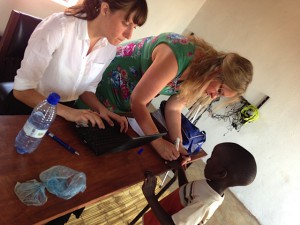 If you have never tried to register the names and details of hundreds of small children, and chase them all down to put the right coloured and named wristbands on each one, you might struggle to imagine the level of chaos that we experienced, with several kids coming back to try and get their photos taken twice, some losing or destroying their wristbands after just one day, and our complete inability to spell Malawian names!
If you have never tried to register the names and details of hundreds of small children, and chase them all down to put the right coloured and named wristbands on each one, you might struggle to imagine the level of chaos that we experienced, with several kids coming back to try and get their photos taken twice, some losing or destroying their wristbands after just one day, and our complete inability to spell Malawian names!
However, somehow we managed this massive task, and got down to business putting the children into groups (a red group, who will use our maths apps for 8 weeks, a blue group who will use other fun, but non-maths, apps, and a pink group who will carry on with teaching as usual). After this, we began to assess the children, running our specially-designed evaluation app on groups of around 50 children at a time.
Thanks to Nicola’s amazing organisational skills and hard work from everyone, we managed to assess all the children who are part of the study in just three days, albeit with our stress levels a little higher at the end of several hours of using our rather basic knowledge of Chichewa to explain to kids how to use their shiny new ipads (or ‘gadgets’ as they call them!). The red group will now have 8 weeks to use the Masamu (maths) apps for a few hours each week, and we will be back to assess their progress in November!
We all had an amazing time in this beautiful country, and it was fantastic to see the level of interest that there is in our project. I was particularly happy to see how far some of the children got with the assessment tasks, and how hard some of them concentrated on getting the right answers, and trying out a range of new tasks that they would never normally be asked to do. There is clearly a lot of natural maths talent there, so we’re extremely excited to see the progress that they make with the extra teaching and support we are giving them during the study.
Make sure you check out our Flickr account for loads of pictures of the goings-on at Biwi school!
Alex
Why I love the JLC
Many people will already be aware of the national languages competition organised by EuroTalk each year, called the Junior Language Challenge. It’s open to all children aged 10 and under, and gives them an opportunity to learn three new languages and compete against other children from their region and ultimately from across the country.
The JLC starts in March and finishes with the final in October. And it’s a lot of work – from a technical point of view (our programmers have literally had sleepless nights getting the software up and running in time) and in terms of organisation. Running a competition like this isn’t an easy task, and with the semi-finals taking place over the next two weeks and the final still to come, it’s only going to get busier.
But I still love the JLC, and here’s why…
Firstly, the children taking part really enjoy it. It’s lovely for us to see their enthusiasm at the regional semi-finals and the grand final in London. Tension’s always high and sometimes there are even tears, which obviously isn’t a good thing in itself, but it does show how passionate the children have become about the competition. In 2011, Ben Fawcett from Chichester even returned early from his family holiday at Disneyworld to compete in the final – that’s what you call dedication.
Secondly, it gives children a love for languages that they can take with them into their future studies and career, and that they might otherwise have missed out on. Marliese Perks from Edinburgh, who reached the final in 2004, wrote to us shortly before she left for university to study Law and Spanish: ‘The competition inspired me to learn languages … little did I know at that age that Spanish and languages would ultimately become my passion … I can’t say thank you enough, you set me on this path and I am loving every minute of it!’ This is the goal of the JLC – to let children know that they can learn languages, and that it can be fun. Not only that but they don’t have to just learn the ones they’re taught at school; Marliese learnt Spanish, Greek and Saami. I’m not sure how often she uses her Saami these days, but what’s important is the JLC showed her she had the ability to learn it, which I think is pretty inspiring.
And finally, there’s a whole other side to the JLC. Each child who enters pays £2.50, and this money is used to purchase tablet devices for schools in Malawi, where class sizes are so huge, it makes teaching a near-impossible task. A tablet that can be shared by several children will fill the gap left by over-stretched teachers, and as a result will literally change lives. A basic education is something that every child should have, no matter where in the world they are, and the competition not only provides opportunities to youngsters in the UK, but it also makes a huge difference for children in Malawi too. I’m proud to be a part of it – albeit a slightly stressed out, panicked part.
To everyone preparing for a semi-final, good luck! To those who’ve already made it through to the final – congratulations, and see you in October 🙂
And to everyone who’s taken part in the JLC – not only in 2013, but every year – thank you.
Liz
A Year in the Life of EuroTalk
There’s no doubt 2012 has been a pretty special year for the UK and the world, but it’s also been quite an eventful one at EuroTalk.
Maths
In January we released a new app, the first in a series to teach maths to primary school age children.
![]()
This is a part of our mission to reach a billion children with fantastic educational apps, to get them off to a great start in life. The most exciting thing about the apps is that we’ll be translating them into 200 languages so they can literally be used by any child, anywhere.
Maths, age 3-5 was an instant hit with parents and children all over the world, and we were delighted with the response. Ever since then we’ve been working hard on the next app, for 4-6 year olds, which has just this week been released to the App Store. The whole series will cover all the years of primary school and we’re really excited about the future!
Malawi
Our work in Malawi has continued this year. In February, Andrew, Jamie, Zane, Alan and RoseMarie, who’s the author of the maths apps, travelled to Malawi to install iPods with the app translated into the local language of Chichewa, in primary schools. They also trained teachers and pupils on how to use the devices. The project is being run in partnership with the Scottish government, and last month Andrew and Jamie returned to Malawi, where they met with Michael Russell, the Scottish Education Secretary. He was delighted with the project so far, which has been declared a success!
Languages
We’ve also been really busy with our language learning programs. In October we released Talk More, Talk the Talk and Talk Business as downloads, as well as the Instant USB, which combines Talk Now and Talk More on one handy and portable USB drive, so it works with all the new computers that don’t have CD drives.
Baby boom!

This year, Zsolt, Olga and Chelsey all welcomed new babies – and brought them in to the office so we could all have a cuddle! Zsolt’s little boy Barnie even became the new ‘face of EuroTalk’ for a while when we posted this photo on our Facebook page.
Arrivals and departures
Sadly over the year we’ve had to say goodbye to a few people as Lotta, Ryan, Katie and Sheila all moved on to new challenges. But we also welcomed some new team members: Fiona, who looks after all our customers (and us) brilliantly; Pedro and Michal, our new app developers; Nat and Alex, who are busy getting our new products translated into hundreds of languages; and Tom, who’s only with us for a year but is already a hugely valued member of the team, helping with customer orders and product testing among many other tasks.
Marathon men – and woman
In October, Al, Franco, Glyn, Jamie, Zane and Zsolt all ran the Royal Parks Foundation Half Marathon in London in aid of some great charities. They all worked really hard training, and of course on the day itself, and are already talking about taking part again next year…
And that’s all for 2012! But we’ll be back in 2013 with more plans and exciting new products. Thanks for reading our blog this year, and we look forward to bringing you more news, opinions and guest posts next year! And as always if you have anything you’d like to share, do get in touch.
Have a great Christmas and New Year, everyone!
Liz and the EuroTalk team



